
The Moody Blues started their career as an R&B band, enjoying a hit with ‘Go Now’, fronted by future Wings member Denny Laine, in 1965. But after Laine left and Justin Hayward and John Lodge joined, the band found a new direction, lush pop songs, supported by Mike Pinder’s Mellotron.
The seven albums that The Moody Blues made between 1967’s breakthrough Days of Future Passed and 1972’s Seventh Sojourn are known as the core seven, all featuring Hayward on guitar and vocals, Lodge on bass and vocals, Pinder on keyboards and vocals, Ray Thomas on flute and vocals, and Graeme Edge on drums and poetry.
Introduction
With four different songwriters, as well as Edge’s poems and occasional songs, The Moody Blues’ quality control can be variable. Hayward dominates the group’s compilations, and he’s the strongest singer, but on their albums songwriting duties are spread relatively evenly. Each writer has their own style – Pinder delivers sonorous, mystical, dramatic songs, while Thomas sometimes tends towards childlike ditties.
With the poetry of Edge often providing a portentous opening to the albums, The Moody Blues can sometimes sound twee and dated. Their strength is arguably their detailed arrangements. they generally stay away from standard rock and roll. Their songs often use acoustic instruments with prominent flute and acoustic guitar. The keyboards and flute provide rich counter-melodies, and the group’s harmonies are also pretty.
While the same five members were all in the band throughout the 1967-1972 era, the group did evolve over their early career. Days of Future Passed has the orchestral interludes, while In Search Of The Lost Chord pushes unconvincingly towards the psychedelic flavours of 1968. The group’s albums became more streamlined in the 1970s, and by 1972’s Seventh Sojourn they moved closer to the rock mainstream, ditching the poetry and turning up Hayward’s electric guitar.
After Seventh Sojourn the band didn’t record another album until 1978’s Octave, and Pinder left the band midway through the sessions. I’ve chosen just to cover the core seven albums at this point, although the Hayward written ‘Your Wildest Dreams’, from 1986’s The Other Side of Life, is an exemplary adult contemporary pop hit, and 1981’s Long Distance Voyager is generally considered their strongest later album.
The Moody Blues Album Reviews
Favourite Album: To Our Children’s Children’s Children
Overlooked Gem: On The Threshold Of A Dream
Days of Future Passed
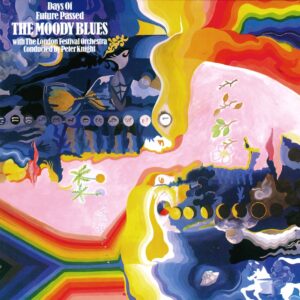
1967, 8/10
Days of Future Passed is The Moody Blues’ second album, but it marked a new beginning for the group. Their 1965 debut The Magnificent Moodies was an R&B album, which featured Denny Laine on guitar and vocals and spawned the hit ‘Go Now’. Laine left the group along with bass player Clint Warwick, and they were replaced by Justin Hayward and John Lodge, creating the lineup that played on The Moody Blues’ “Core Seven” albums. The band struggled on as an R&B group, but changed direction to baroque pop in 1967, emphasising Mike Pinder’s Mellotron and Ray Thomas’ flute.
Days of Future Passed was recorded when the group were paired with conductor Peter Knight and assigned to record Dvorak’s A New World Symphony in a rock style. But the planned project was never finished, and instead The Moody Blues used the studio time to record an album of originals, with Knight composing and using an orchestra of session musicians to record link tracks between the original songs.With Pinder’s mellotron, The Moody Blues’ material already sounds symphonic, and the orchestral tracks fit in more seamlessly than one would expect. As well as the symphonic overtones, the album’s based on the concept of a day passing, from Knight’s instrumental ‘The Day Begins’ through to Hayward’s dramatic closer ‘Nights in White Satin’.
The soaring, orchestrated ‘Nights in White Satin’ is the most notable track on Days of Future Passed, but the album also features ‘The Afternoon’, comprising of seperate parts by Hayward and Lodge. Lodge’s driving ‘Peak Hour’ sounds like a holdover from their R&B days, but it’s a nice burst of energy in the middle of the record. Like every Moody Blues album, there’s some silly Graeme Edge poetry, but it’s best to not analyse it too deeply and just let it add to the group’s silly, mystic feel.
The Moody Blues never made an album like Days of Future Passed again – while they’d retain the symphonic feel with Pinder’s Mellotron, the orchestral interludes give this album a unique feel in their discography.
In Search of the Lost Chord
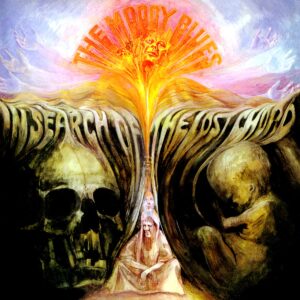
1968, 6.5/10
Days of Future Passed had elements of psychedelic pop, but with their follow-up effort, The Moody Blues fully embraced the hippie ethos, with songs like ‘Om’ and lyrics like “Timothy Leary’s dead”. I have difficulties with the approach – this attempt to jump on the hippie bandwagon has always felt forced to me, at odds with The Moody Blues’ strait-laced image. After their previous success, the group had the license to go all-in in the studio, and the group used all sorts of weird and wonderful instruments, embracing the Indian textures recently used by The Beatles. The resulting album is often distracting – while there are good songs, the hippie facade is distracting.
There are good songs among the mess – ‘Ride My See-Saw’ is a peppy John Lodge rocker that largely avoids the psychedelic trappings. Hayward’s material on the second side also generally eschews the hippie sounds for pretty ballads like ‘Voices in the Sky’ and ‘The Actor’, and is also effective. But there’s a fair bit of silliness like ‘Om’ and ‘Dr. Livingstone, I Presume’, and it’s one of the less satisfying albums from the “Core Seven”.
In Search of the Lost Chord is a weak follow-up to Days of Future Passed, and the group would drop the psychedelia and focus on solid song-craft for their next release.
On The Threshold of a Dream
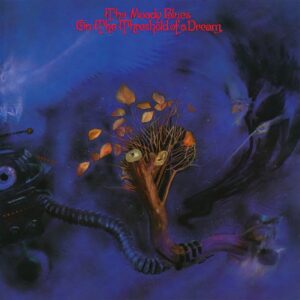
1969, 8/10
In Search of the Lost Chord often posited itself as a search for deeper meaning, with Mike Pinder and Graeme Edge as gurus. On The Threshold of a Dream lightens the band’s approach, largely dropping the mysticism for a set of pretty, straightforward pop songs. While it’s a little fluffy and disposable, pretty pop songs is where The Moody Blues excel, and a whole album of them with little distraction makes Threshold one of the band’s better albums.
The opening ‘In The Beginning’ is one of Edge’s more effective poetry pieces, but the overriding mood of the album is set by melodic, mid-tempo songs like Pinder’s ‘So Deep Within You’, twee but with rich arrangements and harmonies. Hayward’s ‘Lovely To See You’ is energetic and memorable, as is Lodge’s ‘To Share Our Love’. The second side is moodier, with Hayward’s beautiful ‘Never Comes The Day’, while Pinder dominates the end of the album with his ‘Have You Heard’/’Voyage’ suite.
On The Threshold of a Dream is so light that it almost feels disposable, but it’s still a strong entry in The Moody Blues’ catalogue.
To Our Children’s Children’s Children
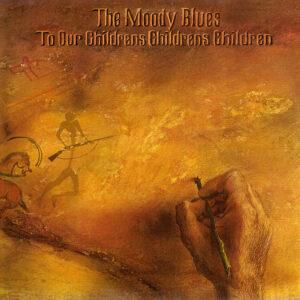
1969, 9.5/10
To Our Children’s Children’s Children was the poorest selling of The Moody Blues’ “Core Seven” albums, but in retrospect, it’s their strongest work. It takes their lush sound to its extreme; these songs were difficult to play live, and their next album was purposefully more simple. Inspired by the moon landing of the same year, it’s a concept album based around space travel, although I always find it difficult not to think in double entendres with Mike Pinder’s ‘Out And In’.
Most importantly, all four songwriters contribute high-class material. I often find Ray Thomas the weakest writer in the group, but his ‘Eternity Road’ is excellent and he also contributes to the majestic closer, the Hayward fronted ‘Watching and Waiting’. Hayward provides the key material – ‘Gypsy (Of a Strange and Distant Time)’ is both urgent and beautiful, while his stripped back ‘I Never Thought I’d Live To Be A Hundred’ is just his acoustic guitar and voice. Other strong songs like Pinder’s ‘Sun Is Still Shining’, with Hayward’s sitar, and Lodge’s ‘Candle Of Life’, with Pinder’s mellotron riff, are representative of the tuneful, beautifully arranged material on To Our Children’s Children’s Children.
The lush, gentle, melodic songs of To Our Children’s Children’s Children are The Moody Blues’ finest achievement, and for me this album towers above the band’s other work.
A Question of Balance
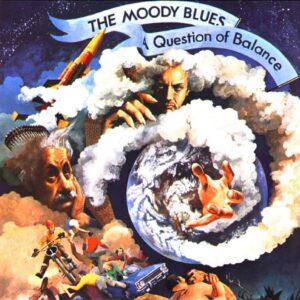
1970, 7.5/10
The lush orchestrations of To Our Children’s Children’s Children proved difficult to recreate on stage, and The Moody Blues stripped back down their sound for A Question of Balance. Because of the less detailed sound, A Question of Balance feels like a retreat back from the band’s career peak, although the material is generally strong. It’s not as explicitly a concept album as a lot of their other work, but there is an environmental theme on a lot of these tracks, like Pinder’s ‘How Is It (We Are Here)’ (“Men’s mighty mine-machines digging in the ground/Stealing rare minerals where they can be found”) and Edge’s ‘Don’t You Feel Small?’
Instead of opening with an Edge poem, A Question of Balance opens with Hayward’s excellent ‘Question’. With its driving acoustic guitar and Mellotron flourishes, it’s one of the band’s best songs. ‘Dawning Is The Day’ is another Hayward highlight, an acoustic piece with lots of gorgeous flute from Thomas. Pinder’s ‘Melancholy Man’ takes his self-examining, self-loathing lyrics to an extreme, and it’s silly on paper but works musically, although that applies to a lot of Moody Blues’ material. ‘And The Tide Rushes In’ is one of my favourite Thomas songs too, simple and effective.
A Question of Balance is a step back in ambition, but it’s still a consistent, often excellent, album from The Moody Blues.
Every Good Boy Deserves Favour
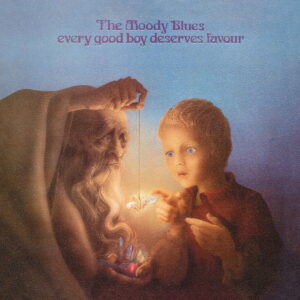
1971, 6/10
Every Good Boy Deserves Favour is named after the mnemonic that piano students use to remember the notes on the treble clef – although I was taught it as “Every Good Boy Deserves Fruit”. While it has enough of their detailed arrangements and melodic tunes to be a solid entry, it’s the most inconsequential Moody Blues album from the core seven. It doesn’t bring anything new to the group’s oeuvre, and it feels like a lesser rehash of past triumphs.
‘The Story In Your Eyes’ is an excellent Hayward song, even though it’s melodic and harmonised, it’s one of the group’s most rock-oriented pieces. The opening ‘Procession’ attempts to capture the history of western music in one four-minute piece, and it’s entertaining enough, while John Lodge’s ‘Emily’s Song’ is a pretty tribute to his newborn daughter. Edge’s song ‘After You Came’ is effective, but much of Pinder and Thomas’ material is weak, particularly Thomas’ nursery rhymes like ‘Our Guessing Game’.
Sometimes I feel like the “Core Seven” is a genius marketing concept that The Moody Blues used to make people collect their set of albums; if you like the rest, you’ll probably want to hear Every Good Boy Deserves Favour too, but it’s the least essential album of the period.
Seventh Sojourn
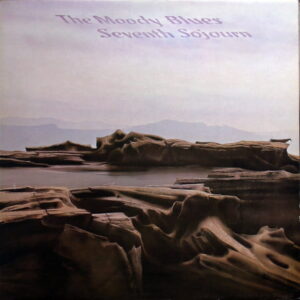
1972, 8/10
Seventh Sojourn is more streamlined than The Moody Blues’ earlier albums – the poetry’s gone, and there are only eight tracks. There’ more electric guitar, and only eight songs – it feels much more like a 1970s rock album than a 1960s psych-pop album. In a further break from their 1960s’ work, the Eastern mysticism that characterised a lot of Pinder’s work is gone. There are references to Christianity in ‘You And Me’, while Lodge’s ‘I’m Just a Singer (in a Rock and Roll Band)’ explicitly deflates the band’s reputations as gurus.
With the streamlined approach and no poetry, Seventh Sojourn is arguably The Moody Blues’ most accessible album. John Lodge is the star here, and ‘Isn’t Life Strange’ and ‘I’m Just a Singer (in a Rock and Roll Band)’ are the album’s centrepieces. Pinder’s ‘Lost In A Lost World’ is a dramatic and effective, opener. Hayward’s ‘New Horizons’ is typically gorgeous.
Even though the band were tired and relationships were strained, Seventh Sojourn is one of the band’s stronger albums and it’s an excellent conclusion to the core seven.
10 Best Moody Blue Songs
Back to 1960s album reviews…..
16 Comments
Leave a Reply
Related Pages
About
Aphoristic Album Reviews is almost entirely written by one person. It features album reviews and blog posts across a growing spectrum of popular music.
Review Pages
Read about the discographies of musical acts from the 1960s to the present day. Browse this site's review archives or enjoy these random selections:
Blog Posts
I add new blog posts to this website every week. Browse the archives or enjoy these random selections:
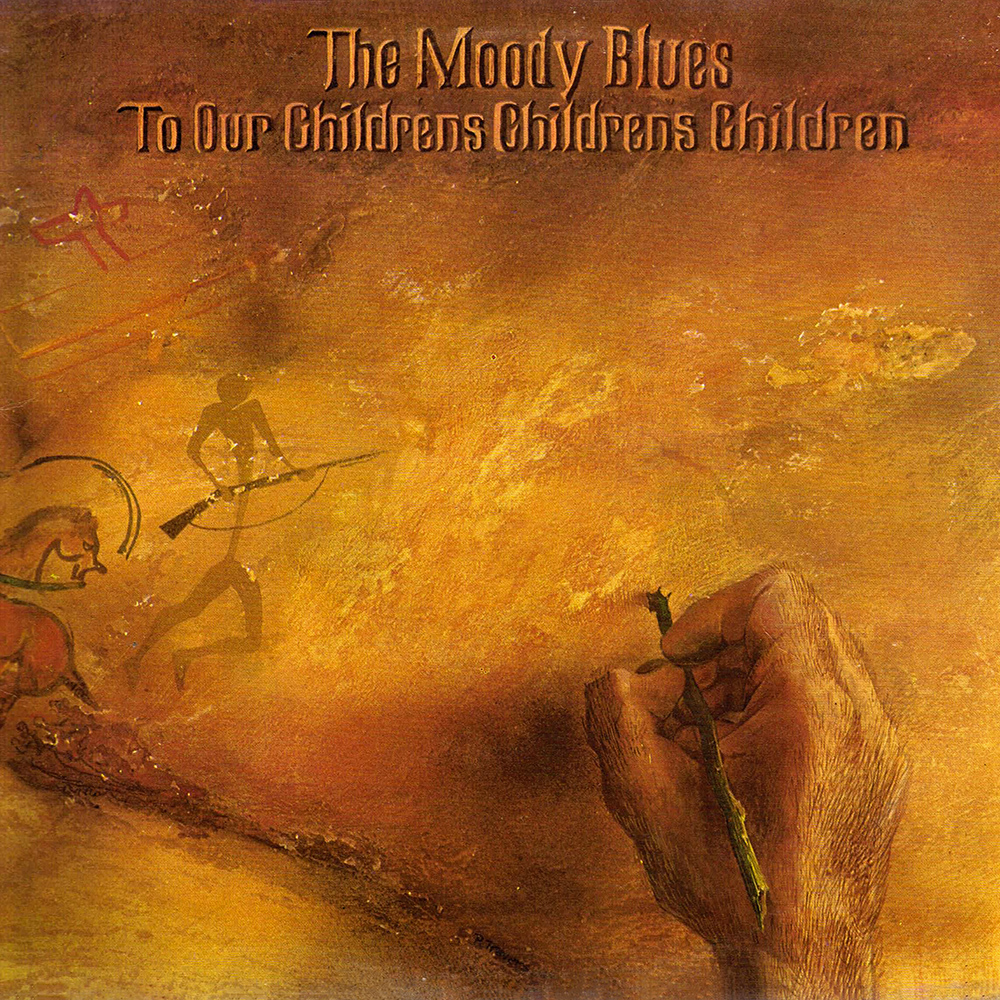
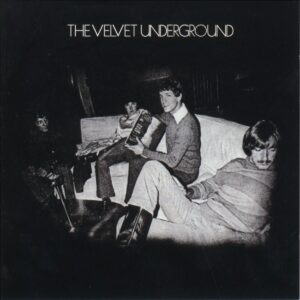
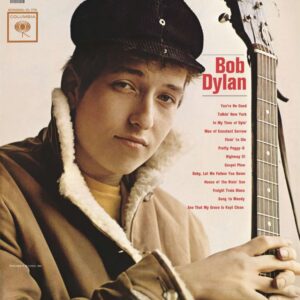
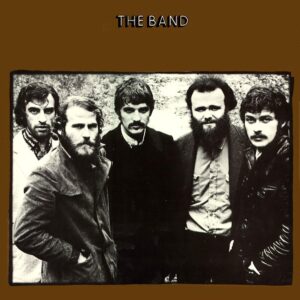
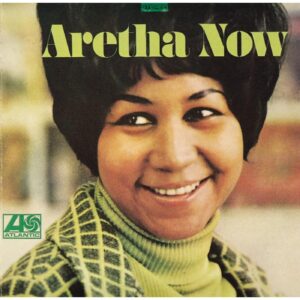
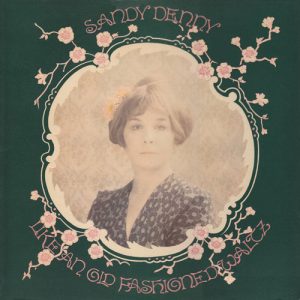
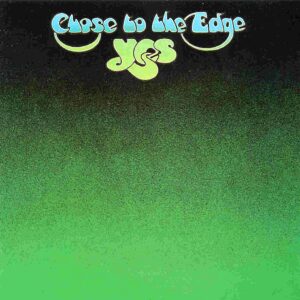

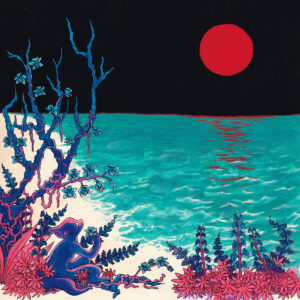
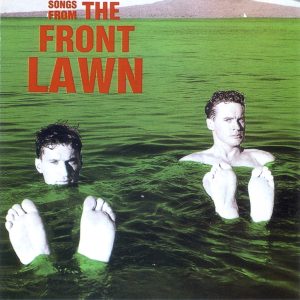
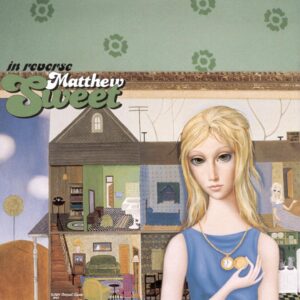
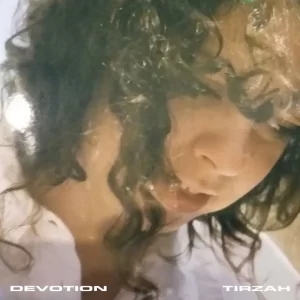
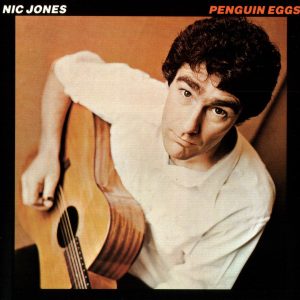
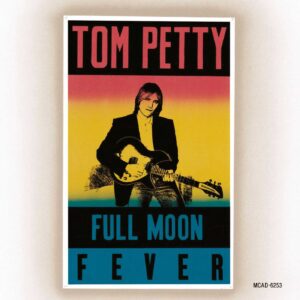
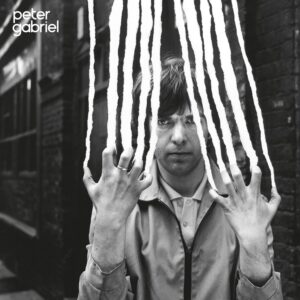
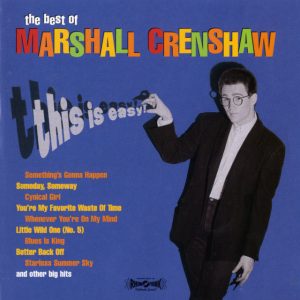
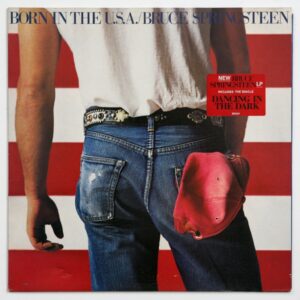

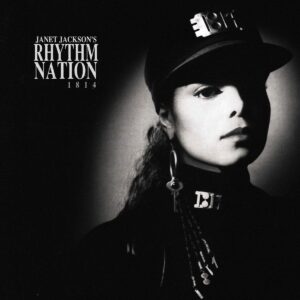
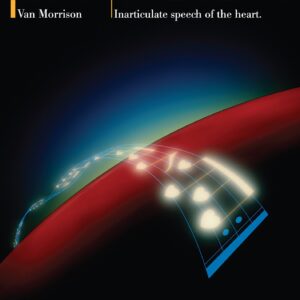




I appreciate and respect your thoughts on The Moody Blues but I must take issue in one respect. In my opinion, which is not any better than anyone else’s, Every Good Boy Deserves Favour is the best of the core seven albums. To our Children’s Children’s Children is a strong album and contains one of my favorite Moodies songs, Out and In, but I don’t think it rates as their best.
When I speak to folks who are not familiar with their work, I play Out and In as the quintessential Moody Blues song.
Disclaimer: I am a long time Moody Blues fan, especially of the core 7 albums. I even got the chance to meet them once when they flew into my hometown for a concert (I worked at the airport FBO at the time). They were very nice and offered to pose for a picture for me (had a camera around my neck I had forgotten about). They are very respectful of their fans.
Thanks for writing in!
Obviously my list is my personal opinion too – I like to use headlines that sound definitive, but at the end of the day it’s my subjective opinion too. The Moody Blues’ Core Seven was all recorded within a few years, so there’s not really an overall decline and you could make a case for any of them as the strongest. I imagine Days of Future Passed is probably the consensus pick as best, since it features their best known song.
It’s awesome that you got to meet them! I imagine they’re pretty normal by famous musician standards.
They acted like normal folks. I got the impression they didn’t think they were special or better than anybody else.
I agree with you, the core 7 albums are pretty consistent, I would say consistently great (thats why toare my favorite band).
The Moody Blues has become the 60’s band that I probably listen to most. Not sure why. Maybe because I’m not too overly familiar with their stuff yet. The three albums after Days of Future Past seem to be my favorites now. But their best stuff is spread out over those first six or seven albums, which is why my favorite Moody Blues album is the fantastic This is The Moody Blues compilation. It leaves none of my favorites out and it is very generous. I think it might be my favorite compilation ever. And everything on it sounds like they all go together.
One of the Moody Blues commented on this blog a couple of weeks back!
They were all great. ” Chord ” reminded me of my year in Germany when it came out. ” Dream ” reminded me of
my year in Vietnam, ” Balance ” came out when I became a civilian again in July, 1970, ” Favour ” when I met
my wife and ” Seventh ” when we got married in 1972. Somewhere in the mix, ” Days ” was dropped into the soup and all it did was make a great band even better. They were second only to the Fabs. No one album was
any better then the rest but I did find ” Seventh Sojourn ” a little light on material. A few more songs would have
helped. Pinder left after that because he was tired of the touring. A dime for every joint I ever smoked listening
to them and I’d have a second pension. Saw them live 5 times and even had front row seat, center stage at Carnegie Hall in December, 1970. Saw them at Madison Sq Garden, the Felt Forum, Nassau Coliseum and
one other place….Sad to hear Ray died in January, 2018. All of their cd’s, like the Beatles, continue to get an
active workout….I only wish their entire 7 core catalog would get a total remaster like the Beatles did…
I don’t know. I heard the remastered Every Good Boy and it sounded all wrong. I liked it better the old way. I didn’t like the way that the vocals were mixed especially . It just sounded all wrong.
That’s the thing with remasters, they do sound different. But in most cases I think the better sound quality makes them worth it.
The first album you love of an artist is difficult to supplant. My intro to The Moodies as a 6-7 year old child was A Question Of Balance. My eldest brother aged 21 bought it. I can’t imagine a more perfect album. It’s easy to listen to, is thought provoking (at aged 7 lol), has variety of style & pace yet flows seamlessly. I loved that they all wrote & sang (talked for Graeme Edge). It took me a few years as a young boy without an income to collect their earlier work. I respect these 7 albums and enjoy Seventh Sojourn & To My Children’s…. the best of the others. Favourite song of recent years is Fly Me High which I first heard ‘live’ seeing them here in Sydney in the 00’s! I must add that the 1980s Long Distance Voyager album brought back the magic and was exceptional imo. Thanks for sharing your thoughts. The Moody Blues had a profound influence on me & provided a safe environment to appreciate beauty & ask questions about life. Thanks again.
Thanks for writing in! My first Moodys album was In Search of the Lost Chord – I actually considered stopping there, as I never really got into it. I am pretty aware of that first album you get into bias when I’m reviewing stuff – it’s often the case (but it’s also often the case that you seek out the most critically acclaimed).
This is one of the greatest bands ever, better than Pink Floyd but vastly underrated. I loved the Search for the Lost Chord, did not think the psychedelic songs forced in the least. All amazing talents. Why did they not make an Odds and Sods type album of unreleased material (King and Queen, What Am I doing Here, The Dreamer etc) I will never know. The Rock and Roll Hall of Fame will forever be diminished by not electing the Mooodies until after Ray Thomas died. A top ten of all time band
I didn’t realise there were rarities floating around – are they from the 1967-1972 era?
There is enough top end material for at least one more album. Frankly, some of their very best stuff. From different points in the Core Seven Days. Interesting, there is some music intended for the follow up to Seventh Sojourn that was never recorded: Island by Justin is fantastic. The Dreamer by Ray and Justin, King and Queen, Cities.
One of the best songs ever recorded by the Moodies is Pinder’s Simple Game which was released on the “This is” compilation.
I think at one time or another I’ve considered each of The Moody Blues’ albums to be my favorite. What’s wonderful about them is you can almost always know who wrote a particular song. They had different styles that meshed together beautifully. Hayward is probably up there with the best melodic songwriters of the past 50 years, and his guitar playing is so underrated. The Moodies’ music makes you feel good — I think that’s one of the main reason their fans love it so much. The arrangements sound like nobody else’s, and unlike Pink Floyd (most of the time), they knew how long their songs should be and even when they got mystical, they didn’t overstay their welcome. Mike Pinder is a very nice guy, and when you listen to interviews with the others, they are very humble and sound like plain old decent human beings. Only with incredible musical skills. I’m not sure why they get dissed as much as they do by some classic rock fans — their music is more rewarding than so many other bands of the time. Melody wins out every time!
I love your reviews, and I agree with the vast majority. But Every Good Boy Deserves Favour is near the top of my list. There is not a bad song here. Recently, I have developed a small preference for TOCCC, but EGBDF is still a close second
I’m glad we agree most of the time! I don’t know why I’ve never quite connected with EGBDF – it’s always seemed a little slight to me, even though ‘Story in Your Eyes’ is great.